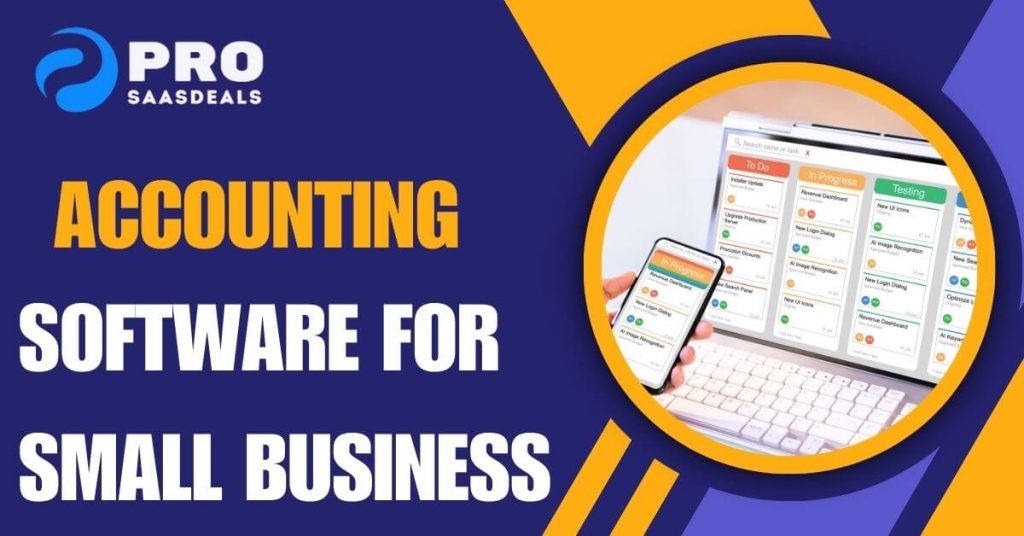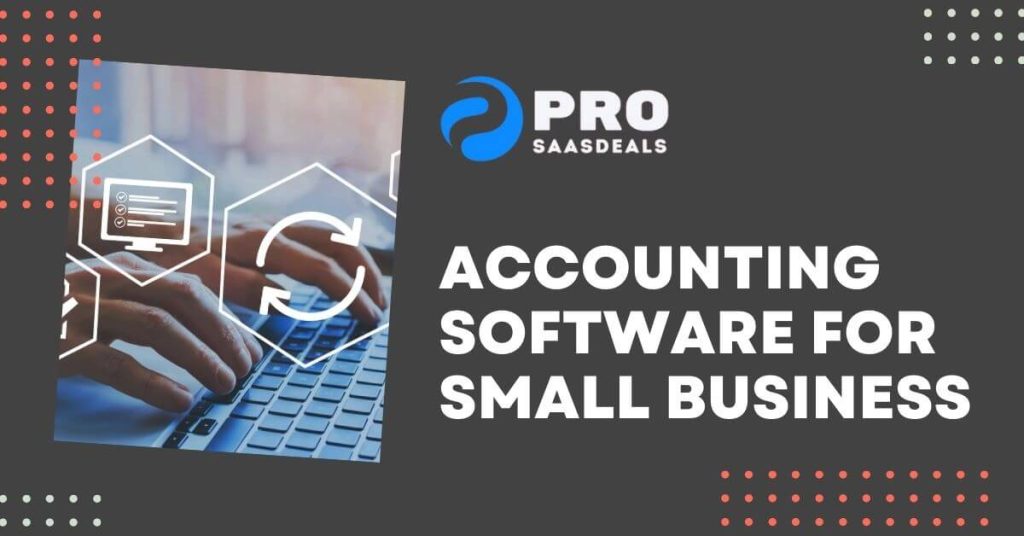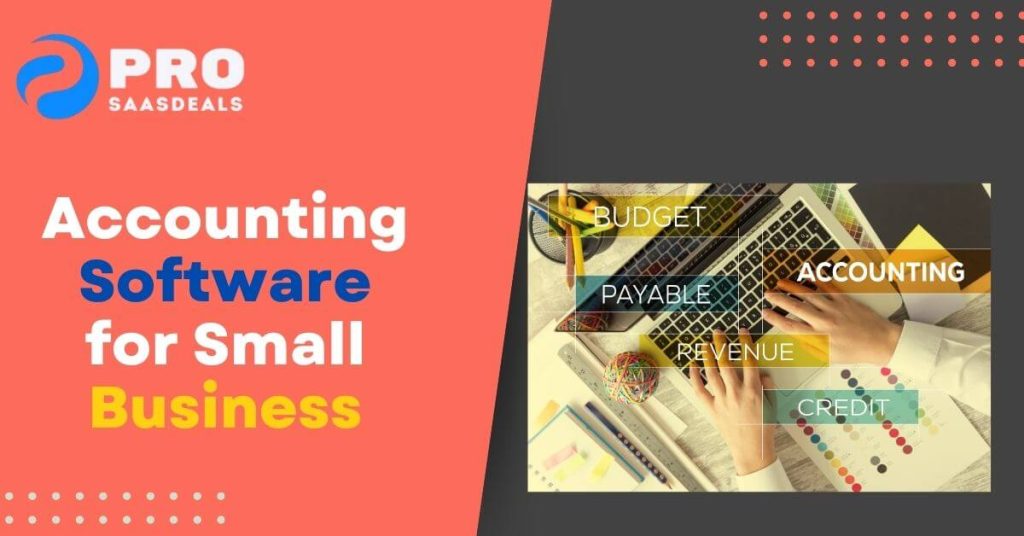Managing finances can be tough for small business owners. Accounting software makes it easier.
With so many options, finding the best one can be hard. Small businesses need efficient tools to track income and expenses. The right software can save time and reduce errors. It helps with invoicing, payroll, and tax preparation. The right choice depends on your business needs.
Whether you need basic bookkeeping or advanced features, there’s a solution for you. In this post, we’ll explore top accounting software options that suit small businesses. We’ll look at features, benefits, and ease of use. By the end, you’ll know which software can help your business thrive. Let’s dive in and find the best fit for your accounting needs!
Quickbooks Online
QuickBooks Online stands out as a top choice for small businesses. It offers a user-friendly platform with comprehensive accounting tools. Designed to simplify financial management, it caters to various industries.
Key Features
QuickBooks Online provides several key features that benefit small businesses:
- Expense tracking and categorization
- Invoice creation and management
- Bank reconciliation
- Automatic tax calculations
- Payroll processing
- Multi-device access
- Integration with other business apps
Pros And Cons
QuickBooks Online has several advantages and a few drawbacks:
Pros:
- Easy to use interface
- Comprehensive reporting tools
- Scalable with business growth
- Cloud-based accessibility
- Strong customer support
Cons:
- Monthly subscription fee
- Limited customization options
- Learning curve for new users
Freshbooks
FreshBooks stands out as an excellent choice for small business accounting. Its simple interface and powerful features make managing finances easier for many users. FreshBooks helps small business owners save time and improve their accounting accuracy.
Key Features
FreshBooks offers a range of features designed to simplify accounting. It includes time tracking, expense management, and invoicing. Users can easily create professional invoices in minutes. The software also supports online payments, helping you get paid faster.
FreshBooks integrates with many popular apps like PayPal, Stripe, and G Suite. This flexibility ensures it fits well with other tools you may already use. The mobile app allows you to manage your accounting on the go.
| Full Product Details Available for Review |
Pros And Cons
FreshBooks has several advantages. It is user-friendly, making it ideal for those with limited accounting knowledge. Automation features save time by reducing manual data entry. The customer support team is responsive and helpful.
However, there are some drawbacks. FreshBooks can be more expensive than other options. Some users report that the project management features are basic. It may not be suitable for larger businesses with complex needs.
Xero
Xero is one of the best accounting software for small businesses. It’s known for its user-friendly interface and powerful features. Many small business owners prefer Xero due to its flexibility and ease of use. Let’s explore what Xero has to offer.
Key Features
Xero offers a range of features that are perfect for small businesses. It supports multiple currencies, which is great for global transactions. You can automate tasks like invoicing and reporting. Xero also integrates with over 800 third-party apps. This makes it easy to sync with other tools you use. Bank reconciliation is also simple and quick.
Pros And Cons
Xero has many advantages. First, it’s very easy to use. Even beginners can understand it. It also offers strong customer support. The software is cloud-based, so you can access it from anywhere. Xero also provides regular updates to improve the user experience.
There are a few drawbacks. The pricing can be high for some small businesses. Some users find the initial setup process a bit time-consuming. Also, certain advanced features may require additional training.

Wave
Wave is a popular accounting software designed specifically for small businesses. It offers a range of features that make managing finances easier. Wave is especially known for being free to use, which appeals to many small business owners.
Key Features
Wave provides a variety of tools to help manage your business finances. One key feature is invoicing. You can create and send professional invoices effortlessly. Another feature is expense tracking. It helps you keep an eye on where your money is going. Wave also offers receipt scanning. You can scan and store receipts digitally. Additionally, it has a payroll feature. This helps you manage employee payments easily.
Pros And Cons
Wave has several advantages. First, it is free. This makes it accessible to all small businesses. Second, it is user-friendly. You do not need accounting experience to use it. Third, it has a variety of useful features. These can help you manage your finances efficiently. Fourth, it offers good customer support. You can get help when you need it.
Despite its benefits, Wave has some drawbacks. One disadvantage is limited integrations. It does not connect with many other business tools. Another downside is that it lacks advanced features. Larger businesses might need more complex tools. Lastly, Wave’s mobile app has limited functions. It may not be sufficient for businesses on the go.
Zoho Books
Zoho Books is a popular accounting software designed for small businesses. It simplifies financial management with its user-friendly interface and robust features. Whether you need to handle invoices, track expenses, or manage taxes, Zoho Books covers it all.
Key Features
- Invoicing: Create, send, and manage invoices effortlessly.
- Expense Tracking: Categorize and track expenses for better financial control.
- Bank Reconciliation: Match your bank transactions with your records.
- Project Management: Track project expenses and manage budgets.
- Tax Compliance: Calculate and file taxes with ease.
Pros And Cons
| Pros | Cons |
|---|---|
|
|
Zoho Books stands out for its affordability and ease of use. It’s a solid choice for small businesses aiming for better financial management.
Sage 50cloud
Sage 50cloud is a popular accounting software for small businesses. It combines the power of desktop software with cloud capabilities. This software helps manage your finances, invoicing, and payments efficiently. Small business owners find it user-friendly and reliable.
Key Features
Sage 50cloud offers many features that benefit small businesses. One key feature is its seamless integration with Microsoft Office 365. This makes it easy to share data and collaborate. Another feature is the robust inventory management system. It helps you track stock levels and manage orders. The software also provides detailed financial reporting. You can generate various reports to understand your business better. Sage 50cloud supports multi-user access. This means multiple team members can work simultaneously.
Pros And Cons
There are several pros to using Sage 50cloud. The software is highly secure. Your data is safe with advanced encryption. It also offers excellent customer support. You can access help through phone, chat, or email. The software is customizable. You can tailor it to fit your business needs. However, there are some cons. The software can be expensive for very small businesses. Some users find the interface a bit outdated. Learning the software can take some time. Overall, Sage 50cloud offers many benefits with a few drawbacks.
Kashoo
Kashoo is a popular accounting software for small businesses. It offers a user-friendly interface. Kashoo helps manage finances with ease. This software caters to entrepreneurs and small business owners.
Key Features
Kashoo comes with many helpful features. It offers automatic bank feeds. Users can track expenses and income in real-time. It also provides invoicing options. Kashoo supports multiple currencies. This is useful for businesses with international clients. The software includes project tracking tools. Users can manage projects and track costs easily. Kashoo offers real-time reporting. This helps in making informed decisions. The software also supports collaboration. Multiple users can work on the same account. Lastly, Kashoo provides excellent customer support.
Pros And Cons
Kashoo has many advantages. It is easy to use. The interface is intuitive. Users can set it up quickly. The software is affordable. It offers a free trial. This allows users to test it before buying. Kashoo supports multiple currencies. It is ideal for international transactions. The real-time reporting feature is helpful. It aids in quick decision-making.
There are some disadvantages too. Kashoo has limited integrations. It may not work with all third-party apps. Some users find the mobile app lacking. It has fewer features than the web version. The software may not suit larger businesses. It is designed for small businesses. These are some points to consider.

Freeagent
FreeAgent is a popular accounting software for small businesses. It simplifies financial management with its user-friendly interface. Many small business owners appreciate its ease of use and comprehensive features. FreeAgent helps manage invoices, expenses, and taxes. It is a great choice for freelancers and small business owners.
Key Features
FreeAgent offers a range of useful features. It includes invoice management, expense tracking, and bank reconciliation. Users can also manage their projects and time tracking. The software generates financial reports and handles multi-currency transactions. It integrates with popular payment gateways and banks. Users can access FreeAgent on mobile devices, making it convenient.
Pros And Cons
FreeAgent has many advantages. Its user-friendly interface is easy to navigate. The software saves time with automated tasks. It provides clear and detailed financial reports. FreeAgent’s customer support is responsive and helpful. The mobile app makes accounting on-the-go simple.
There are some drawbacks. FreeAgent may be expensive for very small businesses. It lacks some advanced features found in other software. The software might be overwhelming for complete beginners. Despite this, it remains a strong choice for small businesses.
Oneup
OneUp is a robust accounting software that caters to small businesses. It’s designed to simplify accounting tasks and help business owners manage their finances efficiently. OneUp offers an intuitive interface, making it accessible even for those with limited accounting knowledge.
Key Features
OneUp provides various features tailored to small business needs. It includes invoicing, inventory management, and CRM tools. The software also offers bank reconciliation and expense tracking. Additionally, OneUp supports automated accounting, reducing manual data entry. These features save time and minimize errors.
Pros And Cons
OneUp has several advantages. It is user-friendly and easy to navigate. The automation feature helps reduce workload. It integrates well with other business tools. Customer support is responsive and helpful. OneUp offers a free trial, allowing users to test it before purchasing.
There are some downsides too. The pricing can be high for very small businesses. Some users may find the setup process challenging. Advanced features might be overwhelming for beginners. Limited customization options can be a drawback. Despite these cons, OneUp remains a strong contender for small business accounting software.

Accountedge Pro
AccountEdge Pro is a popular accounting software designed for small businesses. It offers a comprehensive suite of tools to manage finances, inventory, and payroll. This software is known for its robust features and ease of use.
Key Features
AccountEdge Pro comes packed with numerous features that cater to small business needs:
- Invoicing: Create and track invoices with ease.
- Inventory Management: Keep track of stock levels and reorder points.
- Payroll: Manage employee salaries, taxes, and benefits.
- Banking: Reconcile bank accounts and manage transactions.
- Reporting: Generate detailed financial reports and summaries.
| Full Product Details Available for Review |
Pros And Cons
| Pros | Cons |
|---|---|
|
|
Frequently Asked Questions
What Is The Best Accounting Software For Small Businesses?
The best accounting software for small businesses varies by needs. Popular options include QuickBooks, Xero, and FreshBooks. These platforms offer user-friendly interfaces and essential features like invoicing, expense tracking, and financial reporting. They also provide various pricing plans to suit different budgets.
How Does Accounting Software Benefit Small Businesses?
Accounting software benefits small businesses by automating financial tasks. It ensures accurate bookkeeping, reduces manual errors, and saves time. Additionally, it helps in generating financial reports, managing invoices, and tracking expenses, providing a clear picture of the business’s financial health.
Can I Use Accounting Software Without Accounting Knowledge?
Yes, most accounting software is designed for users without accounting knowledge. They offer intuitive interfaces and tutorials. Features like automated calculations, templates, and user guides make it easy for non-accountants to manage their finances effectively.
Is Cloud-based Accounting Software Secure?
Yes, cloud-based accounting software is secure. Reputable providers use encryption and regular backups to protect data. They also implement multi-factor authentication and secure data centers to ensure the safety of your financial information. Always choose a trusted provider with strong security measures.
Conclusion
Choosing the right accounting software can transform your small business. The best options simplify invoicing, expense tracking, and financial reporting. Good software saves time and reduces errors. Each business has unique needs, so pick the one that fits yours. Test different options before making a decision.
Investing in the right tool makes financial management easier. Your small business deserves the best support. Start today and watch your business grow with confidence.

